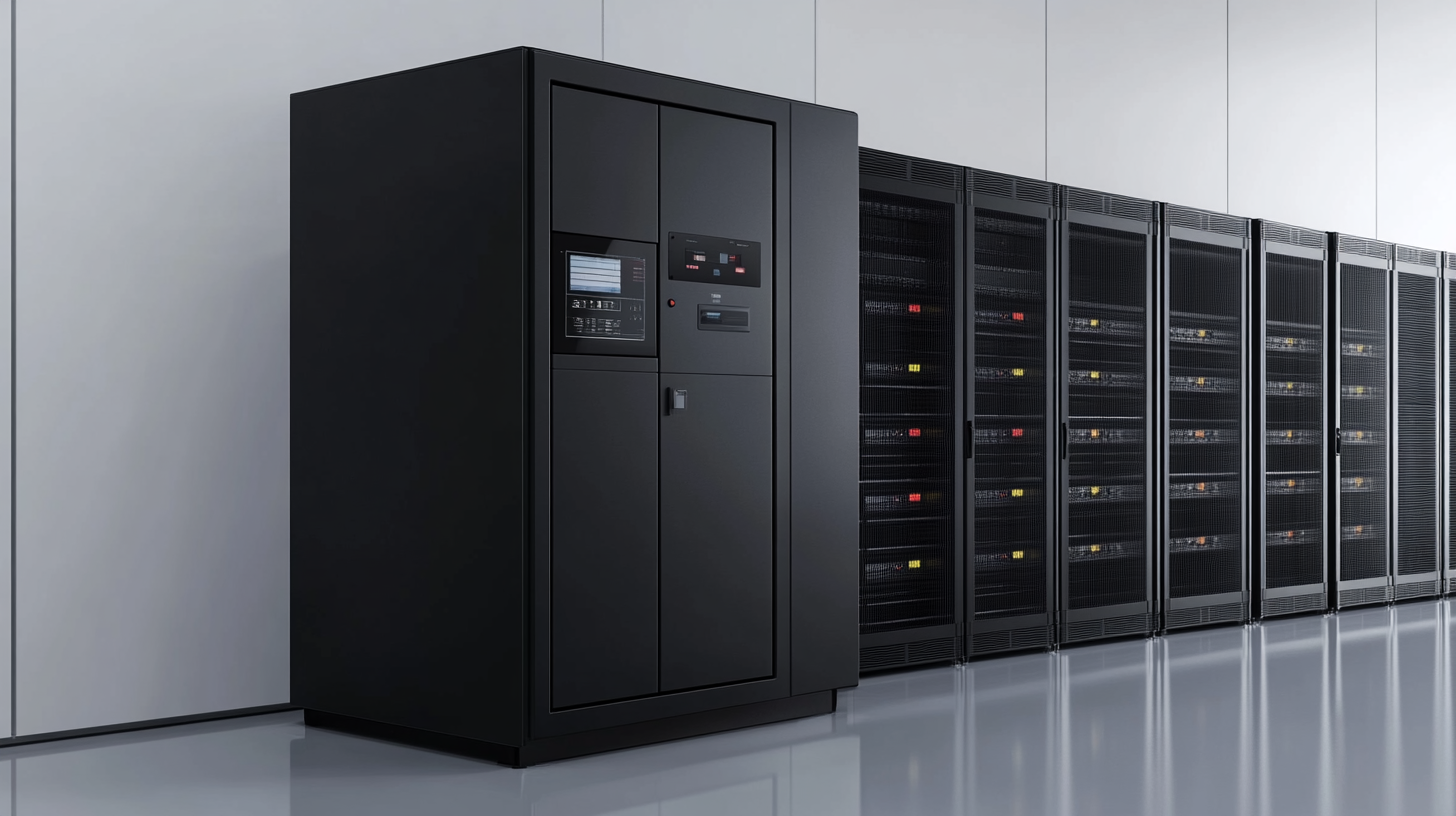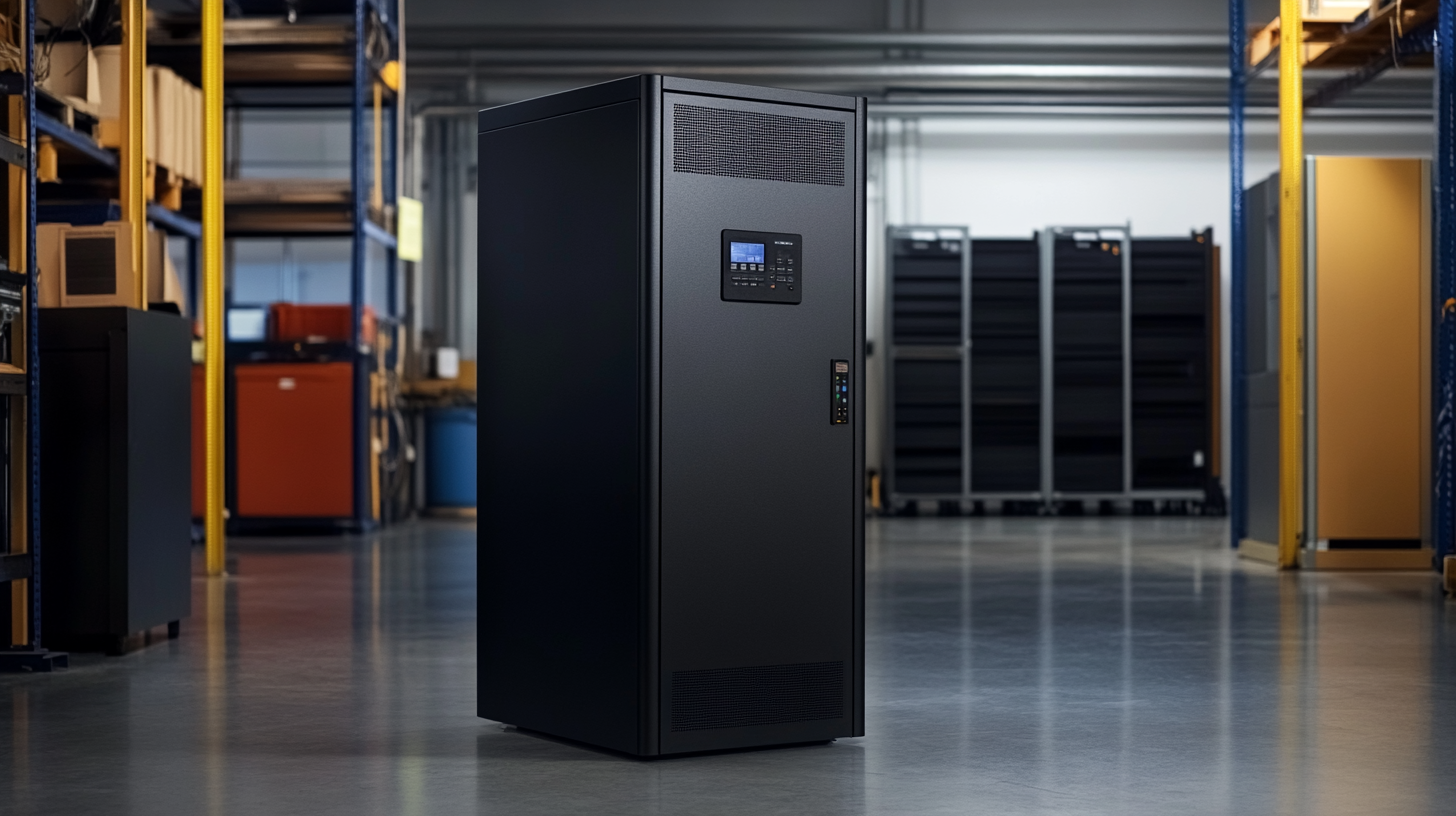Blog
Mastering Ups Power Backup Solutions to Enhance Your Business Efficiency
In today's fast-paced business environment, ensuring operational continuity is critical for success. According to a report by the International Data Corporation (IDC), downtime can cost companies up to $100,000 per hour, with more than 80% of organizations experiencing some form of unplanned downtime annually. In this landscape, UPS power backup solutions have emerged as vital components in safeguarding business operations against power outages, surges, and other electrical disruptions. These systems not only provide reliable energy backup, but they also enhance equipment lifespan, improve data integrity, and minimize the risk of financial losses.
As businesses increasingly rely on technology to drive productivity and efficiency, the demand for robust UPS power backup systems has surged. Research from MarketsandMarkets indicates that the global UPS market is projected to grow from $8.3 billion in 2021 to $11.5 billion by 2026, reflecting a compound annual growth rate (CAGR) of 6.7%. This growth underscores the necessity of integrating high-quality UPS solutions to protect sensitive electrical equipment and maintain smooth operations. In this blog, we will explore the different UPS power backup solutions available, their benefits, and how implementing them can significantly enhance your business efficiency.

Understanding the Importance of UPS in Business Continuity Planning
In today's fast-paced business environment, disruptions caused by power outages can have devastating effects on operations. Understanding the importance of Uninterruptible Power Supply (UPS) systems in business continuity planning is essential for safeguarding not just data but the entire operational framework. A UPS ensures that critical systems remain operational during power interruptions, providing the necessary time to transition to backup solutions or safely shut down systems to prevent data loss. Integrating UPS solutions into your business strategy is not merely a technical consideration, but a crucial aspect of risk management. Companies often overlook the potential consequences of downtime, which can lead to an unexpected loss of revenue and damage to reputation. By investing in a robust UPS system, businesses can enhance their resilience against unforeseen power failures, ensuring that essential services—whether they be customer support channels or internal communications—remain available. Additionally, UPS systems contribute to a more efficient energy management plan. They are not only a safety net during power outages but also help in stabilizing voltage fluctuations and preventing surges, thereby protection your sensitive electronic equipment. By incorporating UPS solutions into your continuity planning, you can ensure that your infrastructure remains robust, equipped to handle disruptions, and prepared for any eventualities that may arise in the day-to-day operations of your business.

Key Features to Look for in a Reliable UPS Power Backup Solution
When selecting a reliable UPS power backup solution, several key features stand out that can significantly enhance your business operations. First and foremost is the capacity rating of the UPS. Businesses should assess their power requirements and look for a UPS that not only meets these demands but also provides a buffer for unexpected surges or extended downtimes. A good rule of thumb is to choose a UPS that offers at least 20-30% more capacity than your current needs, allowing room for future growth.
Another crucial feature to consider is the type of battery technology used in the UPS. Options typically range from lead-acid to lithium-ion batteries, each with its own advantages. Lithium-ion batteries tend to have a longer lifespan, faster charging times, and a smaller footprint, making them an increasingly popular choice for modern businesses. Additionally, look for models with hot-swappable batteries, enabling seamless maintenance without interrupting power supply.
Furthermore, connectivity and monitoring capabilities are essential features in today's digital landscape. A UPS with advanced monitoring software allows businesses to track power consumption, battery health, and system performance in real-time. This information can be invaluable for making informed decisions about energy efficiency and operational readiness. Finally, ensure that the UPS comes with robust network management options, including compatibility with remote management tools, to facilitate easier maintenance and emergency response planning. These features collectively contribute to a reliable UPS solution that not only safeguards critical equipment but also promotes overall business efficiency.

How UPS Systems Can Improve Operational Efficiency and Productivity
In today's competitive business landscape, operational efficiency and productivity are paramount. One often-overlooked aspect that can significantly enhance these factors is the implementation of Uninterruptible Power Supply (UPS) systems. As companies like UPS increasingly prioritize profitable segments over lower-margin deliveries, the right power backup solutions can create a robust framework for ensuring business continuity and operational stability.
Recent industry insights show that the UPS battery market is set to grow substantially, projected to reach $16.2 billion by 2026, with a compound annual growth rate (CAGR) of 6.2% from 2021. This surge in market size reflects an increasing recognition of the importance of reliable power solutions in maintaining productivity levels. With UPS systems in place, organizations can mitigate the risk of downtime caused by power outages, ensuring that critical operations continue without interruption.
Moreover, UPS systems not only provide immediate backup power but also contribute to improved energy efficiency through advanced technologies. These systems often include features like automatic voltage regulation and energy-saving modes, which can lead to substantial savings on energy costs. As UPS transitions to focus on automation and efficiency in their operations, businesses that adopt similar strategies will benefit from enhanced productivity and lower operational risks, allowing them to focus on their core competencies while ensuring their infrastructure remains resilient against disruptions.
In conclusion, investing in UPS solutions is not just about maintaining power; it is a strategic move towards fostering a more efficient and productive business environment. As firms navigate the complexities of modern commerce, the integration of reliable power systems will become increasingly critical in sustaining operational excellence.

Common Mistakes to Avoid When Implementing UPS Solutions
When implementing UPS (Uninterruptible Power Supply) solutions for your business, avoiding common mistakes can significantly enhance efficiency and reliability. One of the primary errors is underestimating power requirements. Many businesses opt for UPS systems that inadequately support their load, leading to unexpected failures during outages. Conducting a comprehensive power assessment is crucial to determine the precise capacity needed to ensure seamless operations during interruptions.
Another common pitfall is neglecting regular maintenance and testing of UPS systems. Just like any other critical equipment, UPS units need routine check-ups to operate optimally. Failing to maintain these systems can result in undetected issues that compromise performance during emergencies. Establishing a maintenance schedule not only enhances the lifespan of the UPS units but also ensures that they function correctly when needed the most.
Moreover, businesses often overlook the importance of educating staff on UPS operations and emergency protocols. Without proper training, employees may panic or misuse the equipment during a power outage, leading to further complications. Providing thorough training on how to operate the UPS, as well as implementing clear emergency procedures, can empower staff to respond effectively and minimize downtime during an unexpected event.
Future Trends in UPS Technology for Enhanced Business Operations
As businesses continue to rely heavily on technology, the importance of uninterruptible power supply (UPS) systems becomes increasingly evident. Future trends in UPS technology are set to revolutionize how companies maintain operational efficiency, ensuring that power outages do not disrupt critical processes. One notable advancement is the integration of smart and IoT-enabled UPS systems. These intelligent units provide real-time monitoring and analytics, allowing businesses to anticipate power issues, optimize energy consumption, and streamline maintenance tasks. With features such as remote management and predictive maintenance, companies can make informed decisions and avoid costly downtime.
Another emerging trend is the adoption of lithium-ion battery technology in UPS systems. Compared to traditional lead-acid batteries, lithium-ion batteries offer improved energy density, longer life cycles, and reduced maintenance requirements. This shift not only enhances reliability but also aligns with sustainability goals, as lithium-ion batteries have a lower environmental impact. As organizations seek to become more eco-conscious, integrating these advanced battery technologies could provide a competitive advantage in operations.
Furthermore, the growing emphasis on renewable energy sources is shaping the future of UPS systems. Hybrid solutions, combining traditional UPS technology with solar or wind power, can create a more resilient energy supply. This not only helps businesses to reduce their carbon footprint but also maximizes the efficiency of power usage. As industries move towards greener practices, UPS technology will play a pivotal role in facilitating these transitions and supporting enhanced business operations in an increasingly power-dependent world.

